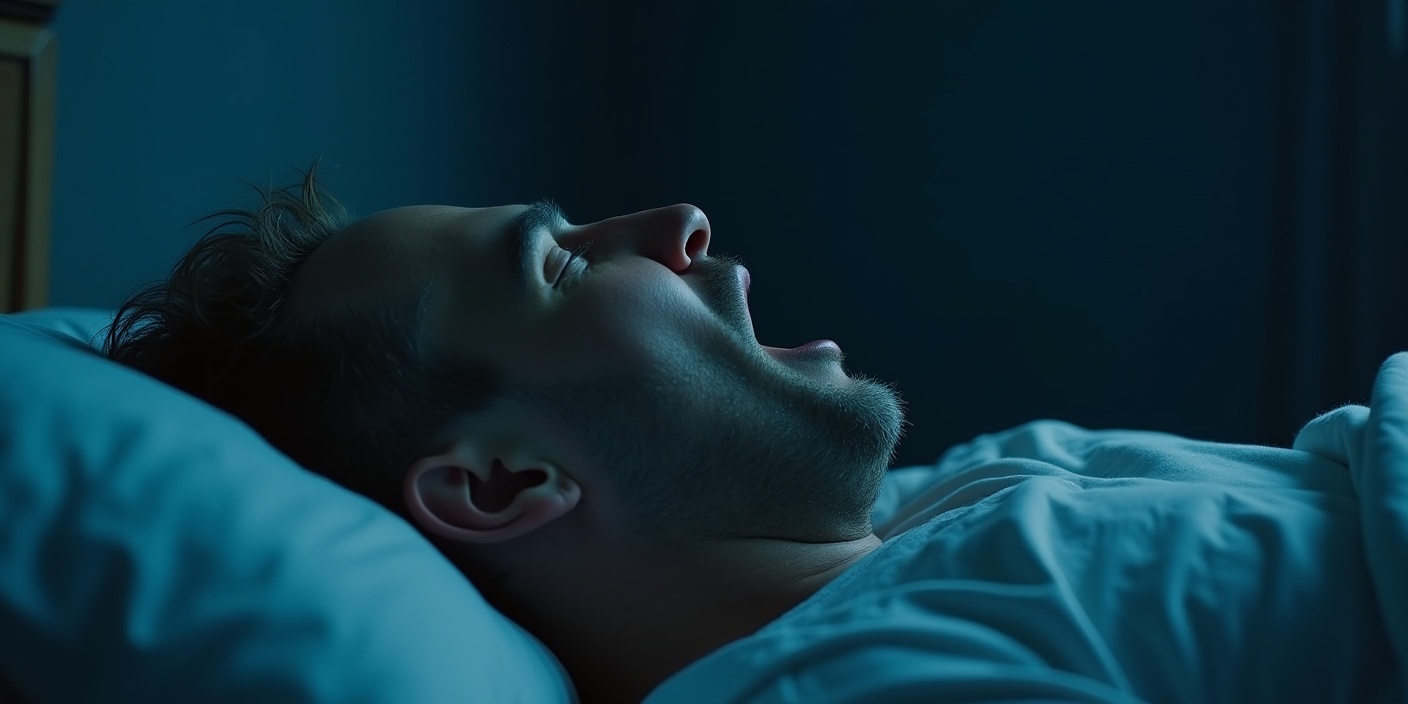Is Snoring Keeping You Up?
If you or someone close to you struggles with loud, chronic snoring, you’ve likely tried everything from nasal strips to sleep apps. But have you ever considered that the real culprit might be something deeper—right inside your nose? One of the most overlooked causes of snoring is a condition known as a deviated septum.
When people search for solutions, they often don’t realize how much the structure of the nose affects breathing during sleep. Let’s take a closer look at deviated septum snoring, how it works, and what you can do about it.
What is a Deviated Septum?
Your nasal septum is the thin wall made of cartilage and bone that divides the left and right sides of your nose. Ideally, it should be centered, allowing air to flow evenly through both nostrils. But in many people—up to 80% by some estimates—the septum is at least slightly off-center. When the deviation is severe, it can block airflow on one side, causing breathing difficulties.
This is where deviated septum snoring begins to show up. With the nasal passage narrowed or blocked, your body works harder to pull in air during sleep. The restricted airflow leads to vibrations in the soft tissues of your throat and nose, which creates the sound of snoring. So even if you’re a healthy weight and sleep on your side, a bent septum might be what’s keeping your partner up at night.

How Common is a Deviated Septum?
A deviated septum is actually quite common. According to the American Academy of Otolaryngology, about 70–80% of people have some degree of deviation, though not all of them have symptoms. However, when the deviation is more pronounced, it becomes problematic. For people experiencing sleep disorders or loud nighttime breathing, it’s worth investigating whether deviated septum snoring is playing a role.
In fact, studies show that around 30% of chronic snorers have a structural nasal problem like a deviated septum. This means that nearly one in three people who snore loudly every night could be experiencing symptoms due to the way their nose is built—not because of obesity, alcohol, or other common causes.
Symptoms that Go Beyond Snoring
Deviated septum snoring is just one sign of a larger issue. People with a severely deviated septum might also face:
- Frequent nasal congestion
- Difficulty breathing through one or both nostrils
- Recurring sinus infections
- Nosebleeds
- Headaches or facial pain
- Postnasal drip
During sleep, these issues can get worse. The limited airflow makes your body switch to mouth breathing, which dries out the throat and can increase snoring even further. In some cases, it can even contribute to sleep apnea, a condition where breathing pauses during sleep. If you regularly wake up feeling tired despite getting enough hours of rest, deviated septum snoring could be draining your energy without you realizing it.
How is Deviated Septum Diagnosed?
A diagnosis typically starts with a visit to an ear, nose, and throat (ENT) specialist. They’ll examine your nasal passages using a lighted instrument and may also use imaging, such as a CT scan, to determine the severity of the deviation. The goal is to assess how much of the septum is blocking airflow and whether it’s linked to your snoring or other breathing problems.
Doctors will often ask about your sleep habits and any daytime symptoms, such as fatigue or dry mouth. In some cases, they might recommend a sleep study to see if your deviated septum snoring is linked to sleep apnea. This step is important because the presence of apnea may change the course of treatment.

Treatment Options for Deviated Septum Snoring
Fortunately, there are a range of treatments available. Not every case of deviated septum snoring requires surgery, though it may be the most effective solution in some situations. Here are the common options:
Nasal Sprays and Decongestants
These can help reduce inflammation and make breathing easier, but they only provide temporary relief. Overuse can also lead to dependency and worsening symptoms.
Nasal Strips or Dilators
These can physically open up the nasal passages, improving airflow during sleep. They’re simple, inexpensive, and non-invasive, but might not work well if the deviation is severe.
CPAP Machine
If deviated septum snoring is part of a sleep apnea diagnosis, a Continuous Positive Airway Pressure (CPAP) machine may be prescribed. It keeps the airways open by delivering steady air pressure through a mask.
Septoplasty
This is the surgical procedure to correct a deviated septum. It involves reshaping or removing the bent portion of the septum to open the nasal passage. Most patients report a significant improvement in breathing and sleep quality after the procedure. Recovery time is usually 1–2 weeks, and the success rate is high, with over 90% of patients experiencing relief from symptoms like deviated septum snoring.
Lifestyle Tips to Manage Symptoms
While you decide on treatment, there are several lifestyle habits that can help reduce deviated septum snoring:
- Sleep on your side instead of your back.
- Keep your bedroom humidified.
- Avoid alcohol and sedatives before bedtime.
- Rinse your nasal passages with saline spray to keep them clear.
- Maintain a healthy weight.
These won’t fix the deviation itself, but they can make the symptoms more manageable and improve your sleep quality in the short term.
Real-Life Impact
Many people underestimate how much deviated septum snoring can affect their daily lives. Poor sleep leads to irritability, low concentration, and even a weakened immune system. In relationships, it can cause tension if one partner’s snoring disturbs the other’s rest. It’s not just about the sound—this issue runs much deeper.
There are even stories of people discovering their deviated septum only after trying multiple other treatments for snoring. Once they undergo septoplasty, they often report quieter nights, better breathing, and improved overall well-being. This just highlights how important it is to identify the root cause of snoring rather than just treating the symptom.
When to See a Doctor
If your snoring is loud, frequent, and accompanied by other symptoms like daytime fatigue or nasal congestion, it’s time to consult a specialist. Deviated septum snoring may seem like a small problem, but left untreated, it can severely impact your health and quality of life. A professional evaluation is the first step to getting the restful, quiet sleep you deserve.
Snoring: A Hidden Sign That Deserves Attention
Snoring is more than just a nighttime annoyance. For many, it’s a sign of something more serious—like a deviated septum. By understanding how deviated septum snoring works and exploring both medical and lifestyle treatments, you can finally find a solution that brings peace to your nights. If you or your loved ones are struggling with noisy sleep, don’t ignore the signs. It might be your nose trying to tell you something.



